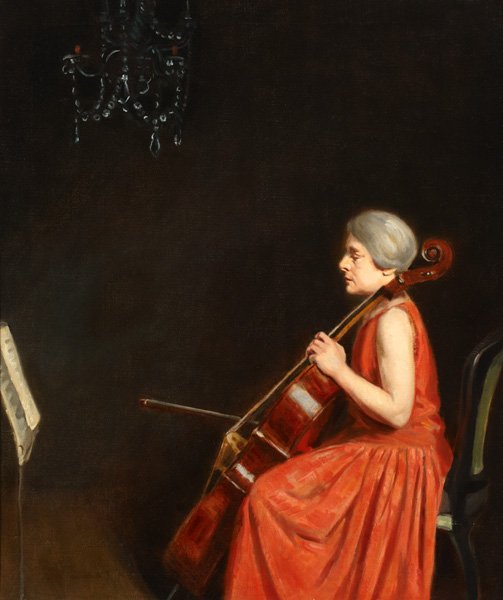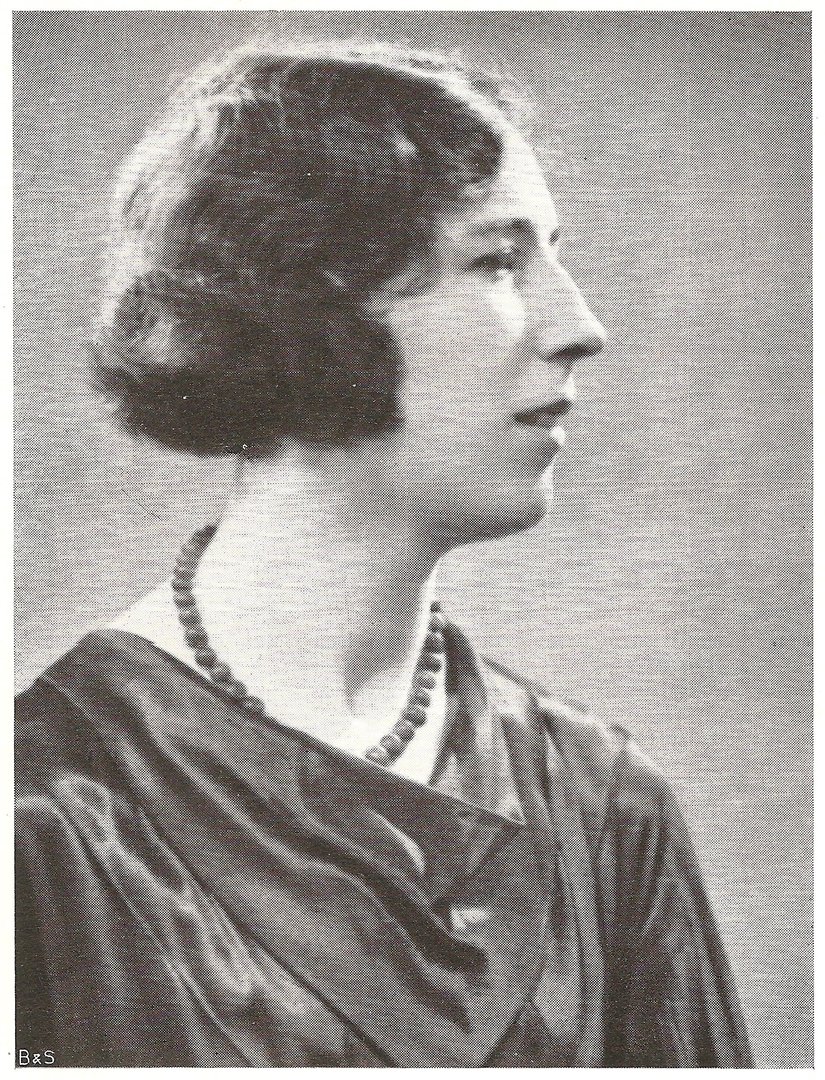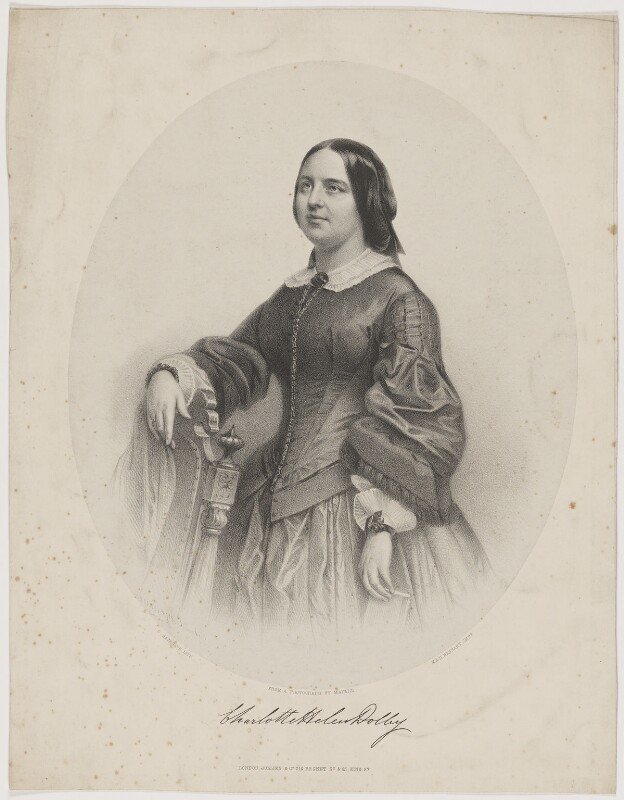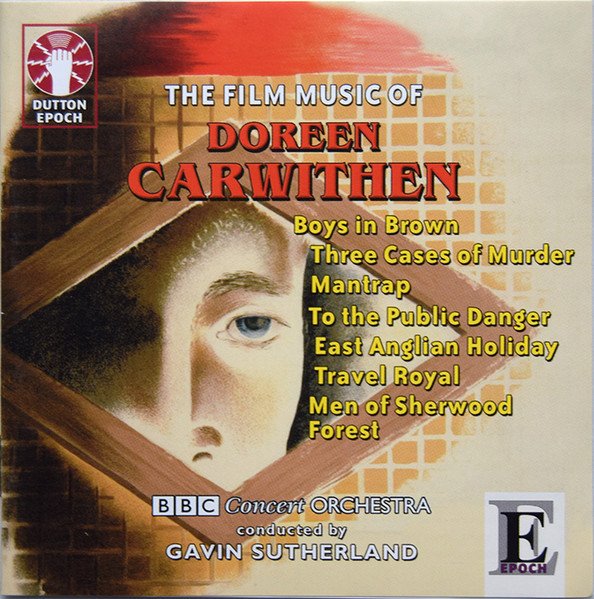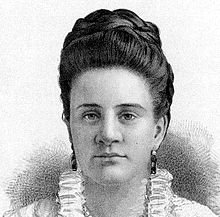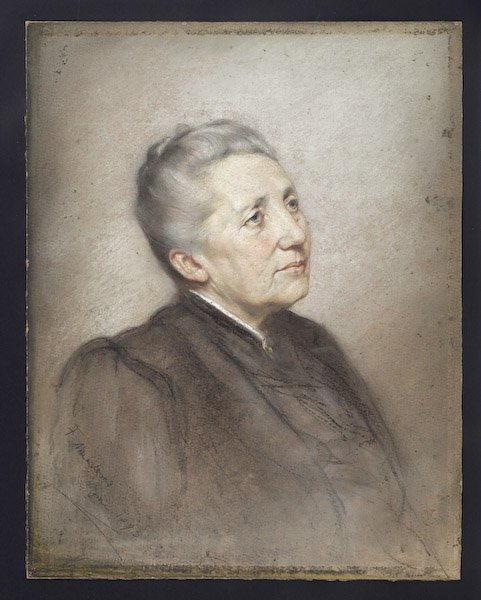To My Muse: Jane Turell
“Come, gentle muse, and once more lend thine aid,
O bring thy succor to a humble maid!
How often dost thou liberally dispense
To our dull breast thy quick’ning influence!
By thee inspired, I ’ll cheerful tune my voice,
And love and sacred friendship make my choice.
In my pleased bosom you can freely pour,
A greater treasure than Jove’s golden shower.
Come now, fair muse, and fill my empty mind,
With rich ideas, great and unconfin’d.
Instruct me in those secret arts that lie
Unseen to all but to a poet’s eye.
O let me burn with Sappho’s noble fire,
But not like her for faithless man expire.
And let me rival great Orinda’s fame,
Or like sweet Philomela’s be my name.
Go lead the way, my muse, nor must you stop
Till we have gain’d Parnassus’ shady top:
Till I have view’d those fragrant soft retreats,
Those fields of bliss, the muses’ sacred seats.
I ’ll then devote thee to fair virtue’s fame,
And so be worthy of a poet’s name.”
The Wind on the downs: Marian Allen
“I like to think of you as brown and tall,
As strong and living as you used to be,
In khaki tunic, Sam Brown belt and all,
And standing there and laughing down at me.
Because they tell me, dear, that you are dead,
Because I can no longer see your face,
You have not died, it is not true, instead
You seek adventure in some other place.
That you are round about me, I believe;
I hear you laughing as you used to do,
Yet loving all the things I think of you;
And knowing you are happy, should I grieve?
You follow and are watchful where I go;
How should you leave me, having loved me so?
We walked along the tow-path, you and I,
Beside the sluggish-moving, still canal;
It seemed impossible that you should die;
I think of you the same and always shall.
We thought of many things and spoke of few,
And life lay all uncertainly before,
And now I walk alone and think of you,
And wonder what new kingdoms you explore.
Over the railway line, across the grass,
While up above the golden wings are spread,
Flying, ever flying overhead,
Here still I see your khaki figure pass,
And when I leave the meadow, almost wait
That you should open first the wooden gate.”
you mean you don't weep at the nail salon?: Elizabeth Acevedo
“it’s the being alone, i think, the emails but not voices. dominicans be funny, the way we love to touch — every greeting a cheek kiss, a shoulder clap, a loud.
it gots to be my period, the bloating, the insurance commercial where the husband comes home after being deployed, the last of the gouda gone, the rejection letter, the acceptance letter, the empty inbox.
a dream, these days. to work at home is a privilege, i remind myself.
spend the whole fucking day flirting with screens. window, tv, computer, phone: eyes & eyes & eyes. the keys clicking, the ding of the microwave, the broadway soundtrack i share wine with in the evenings.
these are the answers, you feel me? & the impetus. the why. of when the manicurist holds my hand, making my nails a lilliputian abstract,
i close my fingers around hers, disrupting the polish, too tight i know then, too tight to hold a stranger, but she squeezes back & doesn’t let go & so finally i can.”
Prayer: carol anne duffy
“Some days, although we cannot pray, a prayer
utters itself. So, a woman will lift
her head from the sieve of her hands and stare
at the minims sung by a tree, a sudden gift.
Some nights, although we are faithless, the truth
enters our hearts, that small familiar pain;
then a man will stand stock-still, hearing his youth
in the distant Latin chanting of a train.
Pray for us now. Grade 1 piano scales
console the lodger looking out across
a Midlands town. Then dusk, and someone calls
a child’s name as though they named their loss.
Darkness outside. Inside, the radio’s prayer -
Rockall. Malin. Dogger. Finisterre.”
Valentine for Ernest Mann: Naomi Shihab Nye
“You can’t order a poem like you order a taco.
Walk up to the counter, say, “I’ll take two”
and expect it to be handed back to you
on a shiny plate.
Still, I like your spirit.
Anyone who says, “Here’s my address,
write me a poem,” deserves something in reply.
So I’ll tell a secret instead:
poems hide. In the bottoms of our shoes,
they are sleeping. They are the shadows
drifting across our ceilings the moment
before we wake up. What we have to do
is live in a way that lets us find them.
Once I knew a man who gave his wife
two skunks for a valentine.
He couldn’t understand why she was crying.
“I thought they had such beautiful eyes.”
And he was serious. He was a serious man
who lived in a serious way. Nothing was ugly
just because the world said so. He really
liked those skunks. So, he re-invented them
as valentines and they became beautiful.
At least, to him. And the poems that had been hiding
in the eyes of skunks for centuries
crawled out and curled up at his feet.
Maybe if we re-invent whatever our lives give us
we find poems. Check your garage, the odd sock
in your drawer, the person you almost like, but not quite.
And let me know.”
Barberries: Mary Aldis
“You say I touch the barberries
As a lover his mistress?
What a curious fancy!
One must be delicate, you know—
They have bitter thorns.
You say my hand is hurt?
Oh no, it was my breast,
It was crushed and pressed.
I mean—why yes, of course, of course—
There is a bright drop—isn’t there?—
Right on my finger;
Just the color of a barberry,
But it comes from my heart.
Do you love barberries?
In the autumn
When the sun’s desire
Touches them to a glory of crimson and gold?
I love them best then.
There is something splendid about them:
They are not afraid
Of being warm and glad and bold;
They flush joyously,
Like a cheek under a lover’s kiss;
They bleed cruelly
Like a dagger wound in the breast;
They flame up madly for their little hour,
Knowing they must die.
Do you love barberries?”
Ladie Culros' Dream: Elizabeth Melvill
“Upon a day as I did morne full sore
For sundrie things wherewith my soull was grieved,
My grieff increased, and grew more and more,
I comfort fled, and could not be relieved;
With heaviness myne heart was sore mischieved,
I loath’d my lyfe, I could not eat or drink;
I might not speak, nor look to none that lived,
But mused alone, and divers things did think.
This wretched world did so molest my mynd,
I thought upon this fals and yron age,
And how our hearts were so to vyce inclyn’d,
That Satan seem’d most frightfully to rage.
Nothing on earth my sorrow could asswadge,
I felt my sinne most stronglie to increase;
I greiv’d the Sprite had want to be my pledge,
My soull was plunged in most deep distress.
All merriness did aggravate my payn,
All earthlie joyes did still increase my wo;
In companie I could no way remayn,
But fled resort, and still alone did go.
My sillie soull was tossed to and fro
With sundrie thoughts, which troubled me full sore;
I preass’d to pray, but sighs ore set me so,
I could do nought but groan, and say no more.
The trickling tears most abundantlye ran down,
Myne heart was eas’d when I had mourn’d my fill:
Then I began my lamantation,
And said, “O Lord! how long is it thy will
That my poor sayncts shall be afflicted still?
Alace! how long shall subtle Satan rage?
Make haste, O Lord, thy promise to fulfill;
Make haste to end my paynfull pilgrimage.” ”
How high yon lark: Sarah Coleridge
“How high yon lark is heavenward borne!
Yet, ere again she hails the morn,
Beyond where birds can wing their way
Our souls may soar to endless day,
May hear the heavenly choirs rejoice,
While earth still echoes to her voice.
A waveless flood, supremely bright,
Has drown’d the myriad isles of light;
But ere that ocean ebb’d away,
The shadowy gulf their forms betray,
Above the stars our course may run,
’Mid beams unborrow’d from the sun.
In this day’s light what flowers will bloom,
What insects quit the self-made womb!
But ere the bud its leaves unfold,
The gorgeous fly his plumes of gold,
On fairer wings we too may glide,
Where youth and joy no ills betide.
Then come, while yet we linger here,
Fit thoughts for that celestial sphere,
A heart which under keenest light,
May bear the gaze of spirits bright,
Who all things know, and nought endure
That is not holy, just and pure.”
The Fairies of the Caldon Low: Mary Howitt
““And where have you been, my Mary,
And where have you been from me?”
“I’ve been to the top of the Caldon Low,
The midsummer-night to see!”
“And what did you see, my Mary,
All up on the Caldon Low?”
“I saw the glad sunshine come down,
And I saw the merry winds blow.”
“And what did you hear, my Mary,
All up on the Caldon Hill?”
“I heard the drops of the water made,
And the ears of the green corn fill.”
“Oh! tell me all, my Mary,
All, all that ever you know;
For you must have seen the fairies,
Last night, on the Caldon Low.”
“Then take me on your knee, mother;
And listen, mother of mine.
A hundred fairies danced last night,
And the harpers they were nine.
“And their harp-strings rung so merrily
To their dancing feet so small;
But oh! the words of their talking
Were merrier far than all.”
“And what were the words, my Mary,
That then you heard them say?”
“I’ll tell you all, my mother;
But let me have my way.
“Some of them played with the water,
And rolled it down the hill;
‘And this,’ they said, ‘shall speedily turn
The poor old miller’s mill:
“‘For there has been no water
Ever since the first of May;
And a busy man will the miller be
At dawning of the day.
“‘Oh! the miller, how he will laugh
When he sees the mill-dam rise!
The jolly old miller, how he will laugh
Till the tears fill both his eyes!’
“And some they seized the little winds
That sounded over the hill;
And each put a horn unto his mouth,
And blew both loud and shrill:
“‘And there,’ they said, ‘the merry winds go
Away from every horn;
And they shall clear the mildew dank
From the blind, old widow’s corn.
“‘Oh! the poor, blind widow,
Though she has been blind so long,
She’ll be blithe enough when the mildew’s gone,
And the corn stands tall and strong.’
“And some they brought the brown lint-seed,
And flung it down from the Low;
‘And this,’ they said, ‘by the sunrise,
In the weaver’s croft shall grow.
“‘Oh! the poor, lame weaver,
How will he laugh outright,
When he sees his dwindling flax-field
All full of flowers by night!’
“And then outspoke a brownie,
With a long beard on his chin;
I have spun up all the tow,’ said he,
‘And I want some more to spin.
“‘I’ve spun a piece of hempen cloth,
And I want to spin another;
A little sheet for Mary’s bed,
And an apron for her mother.’
“With that I could not help but laugh,
And I laughed out loud and free;
And then on the top of the Caldon Low
There was no one left but me.
“And all on the top of the Caldon Low
The mists were cold and grey,
And nothing I saw but the mossy stones
That round about me lay.
“But, coming down from the hill-top,
I heard afar below,
How busy the jolly miller was,
And how the wheel did go.
“And I peeped into the widow’s field,
And, sure enough, were seen
The yellow ears of the mildewed corn,
All standing stout and green.
“And down by the weaver’s croft I stole,
To see if the flax were sprung;
But I met the weaver at his gate,
With the good news on his tongue.
“Now this is all I heard, mother,
And all that I did see;
So, pr’ythee, make my bed, mother,
For I’m tired as I can be.””
Spanish Johnny: Willa Cather
“The old West, the old time,
The old wind singing through
The red, red grass a thousand miles—
And, Spanish Johnny, you!
He’d sit beside the water ditch
When all his herd was in,
And never mind a child, but sing
To his mandolin.
The big stars, the blue night,
The moon-enchanted lane;
The olive man who never spoke,
But sang the songs of Spain.
His speech with men was wicked talk—
To hear it was a sin;
But those were golden things he said
To his mandolin.
The gold songs, the gold stars,
The word so golden then;
And the hand so tender to a child—
Had killed so many men.
He died a hard death long ago
Before the Road came in—
The night before he swung, he sang
To his mandolin.”
A song of a spring-time: Augusta Webster
“TOO rash, sweet birds, spring is not spring;
Sharp winds are fell in east and north;
Late blossoms die for peeping forth; Rains numb, frost blights;
Days are unsunned, storms tear the nights;
The tree-buds wilt before they swell.
Frosts in the buds, and frost-winds fell: And you, you sing.
But let no song be sweet in spring;
Spring is but hope for after-time,
And what is hope but spring-tide rime? But blights, but rain?
Spring wanes unsunned, and sunless wane
The hopes false spring-tide bore to die.
Spring’s answer is the March wind’s sigh: And you, you sing.”
Where Love Is: Amelia Josephine Burr
“BY the rosy cliffs of Devon, on a green hill’s crest,
I would build me a house as a swallow builds its nest;
I would curtain it with roses, and the wind should breathe to me
The sweetness of the roses and the saltness of the sea.
Where the Tuscan olives whiten in the hot blue day, 5
I would hide me from the heat in a little hut of gray,
While the singing of the husbandman should scale my lattice green
From the golden rows of barley that the poppies blaze between.
Narrow is the street, Dear, and dingy are the walls
Wherein I wait your coming as the twilight falls. 10
All day with dreams I gild the grime till at your step I start—
Ah Love, my country in your arms—my home upon your heart!”
One Perfect Rose: Dorothy Parker
“A single flow’r he sent me, since we met.
All tenderly his messenger he chose;
Deep-hearted, pure, with scented dew still wet -
One perfect rose.
I knew the language of the floweret;
’My fragile leaves,’ it said, ‘his heart enclose.’
Love long has taken for his amulet
One perfect rose.
Why is it no one ever sent me yet
One perfect limousine, do you suppose?
Ah no, it’s always just my luck to get
One perfect rose.”
Diaspora Blues: Ijeoma Umebinyuo
“so, here you are
too foreign for home
too foreign for here.
never enough for both.”
Accents: Denice Frohman
“my mom holds her accent like a shotgun,
with two good hands.
her tongue, all brass knuckle
slipping in between her lips
her hips, all laughter and wind clap.
she speaks a sanchocho of spanish and english,
pushing up against one another,
in rapid fire
there is no telling my mama to be “quiet,”
she don’t know “quiet.”
her voice is one size better fit all
and you best not tell her to hush,
she waited too many years for her voice to arrive
to be told it needed housekeeping.
English sits in her mouth remixed
so “strawberry” becomes “eh¬strawbeddy”
and “cookie” becomes “eh¬cookie”
and kitchen, key chain, and chicken all sound the same.
my mama doesn’t say “yes” she says “ah ha”
and suddenly the sky in her mouth becomes a Hector Lavoe song.
her tongue can’t lay itself down flat enough
for the English language,
it got too much hip
too much bone
too much conga
too much cuatro
to two step
got too many piano keys
in between her teeth,
it got too much clave
too much hand clap
got too much salsa to sit still
it be an anxious child wanting to
make Play¬Doh out of concrete English
be too neat for her kind of wonderful.
her words spill in conversation
between women whose hands are all they got
sometimes our hands are all we got
and accents remind us that we are still
bomba, still plena
say “wepa” and a stranger becomes your hermano.
say “dale” and a crowd becomes your family reunion.
my mama’s tongue is a telegram from her mother
decorated with the coqui’s of el campo.
so even though her lips can barely stretch themselves around english,
her accent is a stubborn compass always pointing her toward home.”
Song for a fifth child: Ruth Hulbert Hamilton
“Mother, oh mother, come shake out your cloth!
Empty the dustpan, poison the moth,
Hang out the washing and butter the bread,
Sew on a button and make up a bed.
Where is the mother whose house is so shocking?
She’s up in the nursery, blissfully rocking!
Oh, I’ve grown as shiftless as Little Boy Blue
(Lullaby, rockaby, lullaby, loo).
Dishes are waiting and bills are past due
(Pat-a-cake, darling, and peek, peekaboo).
The shopping’s not done and there’s nothing for stew
And out in the yard there’s a hullabaloo
But I’m playing Kanga and this is my Roo.
Look! Aren’t her eyes the most wonderful hue?
(Lullaby, rockaby, lullaby loo.)
Oh, cleaning and scrubbing will wait till tomorrow,
But children grow up, as I’ve learned to my sorrow.
So quiet down, cobwebs. Dust, go to sleep.
I’m rocking my baby. Babies don’t keep.”
New Year, 1916: Ada Harrison
“Those that go down into silence.
There is no silence in their going down,
Although their grave -turf is not wet with tears,
Although Grief passes by them, and renown
Has garnered them no glory for the years.
The cloud of war moves on, and men forget
That empires fall. We go our heedless ways
Unknowing still, uncaring still, and yet
The very dust is clamorous with their praise.”
The Bad Kittens: Elizabeth Coatsworth
“You may call, you may call
But the little black cats won’t hear you.
The little black cats are maddened
By the bright green light of the moon;
They are whirling and running and hiding,
They are wild who were once so confiding,
They are crazed when the moon is riding
You will not catch the kittens soon.
They care not for saucers of milk,
They think not of pillows of silk;
Your softest, crooningest call
Is less than the buzzing of flies.
They are seeing more than you see,
They are hearing more than you hear,
And out of the darkness they peer.
With a goblin light in their eyes!”
The Description of Cooke-ham: Aemilia Lanyer
“Farewell (sweet Cooke-ham) where I first obtained
Grace from that grace where perfect grace remained;
And where the muses gave their full consent,
I should have power the virtuous to content;
Where princely palace willed me to indite,
The sacred story of the soul’s delight.
Farewell (sweet place) where virtue then did rest,
And all delights did harbor in her breast;
Never shall my sad eyes again behold
Those pleasures which my thoughts did then unfold.
Yet you (great Lady) Mistress of that place,
From whose desires did spring this work of grace;
Vouchsafe to think upon those pleasures past,
As fleeting worldly joys that could not last,
Or, as dim shadows of celestial pleasures,
Which are desired above all earthly treasures.
Oh how (methought) against you thither came,
Each part did seem some new delight to frame!
The house received all ornaments to grace it,
And would endure no foulness to deface it.
And walks put on their summer liveries,
And all things else did hold like similes.
The trees with leaves, with fruits, with flowers clad,
Embraced each other, seeming to be glad,
Turning themselves to beauteous Canopies,
To shade the bright sun from your brighter eyes;
The crystal streams with silver spangles graced,
While by the glorious sun they were embraced;
The little birds in chirping notes did sing,
To entertain both you and that sweet spring.
And Philomela with her sundry lays,
Both you and that delightful place did praise.
Oh how me thought each plant, each flower, each tree
Set forth their beauties then to welcome thee!
The very hills right humbly did descend,
When you to tread on them did intend.
And as you set your feet, they still did rise,
Glad that they could receive so rich a prize.
The gentle winds did take delight to be
Among those woods that were so graced by thee,
And in sad murmur uttered pleasing sound,
That pleasure in that place might more abound.
The swelling banks delivered all their pride
When such a Phoenix once they had espied.
Each arbor, bank, each seat, each stately tree,
Thought themselves honored in supporting thee;
The pretty birds would oft come to attend thee,
Yet fly away for fear they should offend thee;
The little creatures in the burrough by
Would come abroad to sport them in your eye,
Yet fearful of the bow in your fair hand.
Would run away when you did make a stand.
Now let me come unto that stately tree,
Wherein such goodly prospects you did see;
That oak that did in height his fellows pass,
As much as lofty trees, low growing grass,
Much like a comely cedar straight and tall,
Whose beauteous stature far exceeded all.
How often did you visit this fair tree,
Which seeming joyful in receiving thee,
Would like a palm tree spread his arms abroad,
Desirous that you there should make abode;
Whose fair green leaves much like a comely veil,
Defended Phoebus when he would assail;
Whose pleasing boughs did yield a cool fresh air,
Joying his happiness when you were there.
Where being seated, you might plainly see
Hills, vales, and woods, as if on bended knee
They had appeared, your honor to salute,
Or to prefer some strange unlooked-for suit;
All interlaced with brooks and crystal springs,
A prospect fit to please the eyes of kings.
And thirteen shires appeared all in your sight,
Europe could not afford much more delight.
What was there then but gave you all content,
While you the time in meditation spent
Of their Creator’s power, which there you saw,
In all his creatures held a perfect law;
And in their beauties did you plain descry
His beauty, wisdom, grace, love, majesty.
In these sweet woods how often did you walk,
With Christ and his Apostles there to talk;
Placing his holy Writ in some fair tree
To meditate what you therein did see.
With Moses you did mount his holy hill
To know his pleasure, and perform his will.
With lowly David you did often sing
His holy hymns to Heaven’s eternal King.
And in sweet music did your soul delight
To sound his praises, morning, noon, and night.
With blessed Joseph you did often feed
Your pined brethren, when they stood in need.
And that sweet Lady sprung from Clifford’s race,
Of noble Bedford’s blood, fair stem of grace,
To honorable Dorset now espoused,
In whose fair breast true virtue then was housed,
Oh what delight did my weak spirits find
In those pure parts of her well framèd mind.
And yet it grieves me that I cannot be
Near unto her, whose virtues did agree
With those fair ornaments of outward beauty,
Which did enforce from all both love and duty.
Unconstant Fortune, thou art most to blame,
Who casts us down into so low a frame
Where our great friends we cannot daily see,
So great a difference is there in degree.
Many are placed in those orbs of state,
Partners in honor, so ordained by Fate,
Nearer in show, yet farther off in love,
In which, the lowest always are above.
But whither am I carried in conceit,
My wit too weak to conster of the great.
Why not? although we are but born of earth,
We may behold the heavens, despising death;
And loving heaven that is so far above,
May in the end vouchsafe us entire love.
Therefore sweet memory do thou retain
Those pleasures past, which will not turn again:
Remember beauteous Dorset’s former sports,
So far from being touched by ill reports,
Wherein myself did always bear a part,
While reverend love presented my true heart.
Those recreations let me bear in mind,
Which her sweet youth and noble thoughts did find,
Whereof deprived, I evermore must grieve,
Hating blind Fortune, careless to relieve,
And you sweet Cooke-ham, whom these ladies leave,
I now must tell the grief you did conceive
At their departure, when they went away,
How everything retained a sad dismay.
Nay long before, when once an inkling came,
Methought each thing did unto sorrow frame:
The trees that were so glorious in our view,
Forsook both flowers and fruit, when once they knew
Of your depart, their very leaves did wither,
Changing their colors as they grew together.
But when they saw this had no power to stay you,
They often wept, though, speechless, could not pray you,
Letting their tears in your fair bosoms fall,
As if they said, Why will ye leave us all?
This being vain, they cast their leaves away
Hoping that pity would have made you stay:
Their frozen tops, like age’s hoary hairs,
Shows their disasters, languishing in fears.
A swarthy riveled rind all over spread,
Their dying bodies half alive, half dead.
But your occasions called you so away
That nothing there had power to make you stay.
Yet did I see a noble grateful mind
Requiting each according to their kind,
Forgetting not to turn and take your leave
Of these sad creatures, powerless to receive
Your favor, when with grief you did depart,
Placing their former pleasures in your heart,
Giving great charge to noble memory
There to preserve their love continually.
But specially the love of that fair tree,
That first and last you did vouchsafe to see,
In which it pleased you oft to take the air
With noble Dorset, then a virgin fair,
Where many a learned book was read and scanned,
To this fair tree, taking me by the hand,
You did repeat the pleasures which had passed,
Seeming to grieve they could no longer last.
And with a chaste, yet loving kiss took leave,
Of which sweet kiss I did it soon bereave,
Scorning a senseless creature should possess
So rare a favor, so great happiness.
No other kiss it could receive from me,
For fear to give back what it took of thee,
So I ungrateful creature did deceive it
Of that which you in love vouchsafed to leave it.
And though it oft had given me much content,
Yet this great wrong I never could repent;
But of the happiest made it most forlorn,
To show that nothing’s free from Fortune’s scorne,
While all the rest with this most beauteous tree
Made their sad consort sorrow’s harmony.
The flowers that on the banks and walks did grow,
Crept in the ground, the grass did weep for woe.
The winds and waters seemed to chide together
Because you went away they knew not whither;
And those sweet brooks that ran so fair and clear,
With grief and trouble wrinkled did appear.
Those pretty birds that wonted were to sing,
Now neither sing, nor chirp, nor use their wing,
But with their tender feet on some bare spray,
Warble forth sorrow, and their own dismay.
Fair Philomela leaves her mournful ditty,
Drowned in deep sleep, yet can procure no pity.
Each arbor, bank, each seat, each stately tree
Looks bare and desolate now for want of thee,
Turning green tresses into frosty gray,
While in cold grief they wither all away.
The sun grew weak, his beams no comfort gave,
While all green things did make the earth their grave.
Each brier, each bramble, when you went away
Caught fast your clothes, thinking to make you stay;
Delightful Echo wonted to reply
To our last words, did now for sorrow die;
The house cast off each garment that might grace it,
Putting on dust and cobwebs to deface it.
All desolation then there did appear,
When you were going whom they held so dear.
This last farewell to Cooke-ham here I give,
When I am dead thy name in this may live,
Wherein I have performed her noble hest
Whose virtues lodge in my unworthy breast,
And ever shall, so long as life remains,
Tying my life to her by those rich chains.”
Communion: Fiona Sampson
“If I’m you, or you me—
Interpenetrating God—
enlarge our intimacy.
You who are animus
and blood—
who make me dust
from this table
blown into grass,
invisible—
Is it you—or I—
I pass
and cannot see?”
